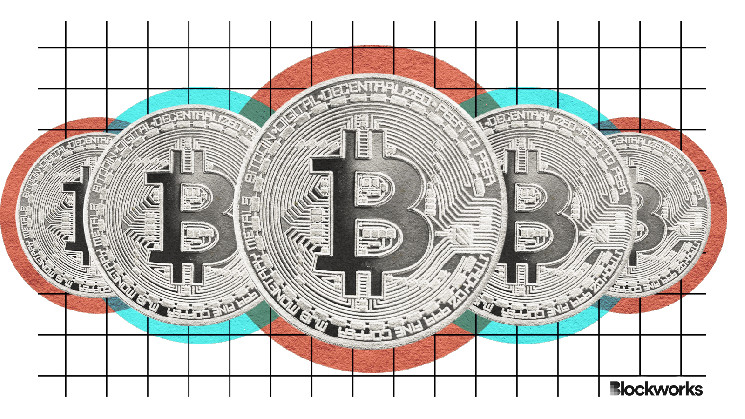
The price of bitcoin continues to chop ahead of the upcoming halving event.
Bitcoin (BTC) sat just above $43,000 early Monday morning, down 2.5% over the year to date but ahead by half across the past six months.
Bitcoin’s price is practically the same as it was at the start of December, although in between it reached as high as $49,000 as the spot ETFs launched on US exchanges last month.
Read more: No bull: Bitcoin has been in a kangaroo market for nearly a whole year
January was still a green candle — but only just — converting to its fifth consecutive positive monthly close.
Bitcoin is now on its longest monthly winning streak since the previous bull market, when it notched six green monthly candles in a row between October 2020 and March 2021.
Bitcoin rallied from under $11,000 to almost $62,000 in that time.
That run started around five months after Bitcoin’s previous halving, which reduced miners’ block rewards from 12.5 BTC ($539,100) to 6.25 BTC ($269,550). Now that figure is to be slashed to 3.125 BTC ($134,900).
Bitcoin lore has it that halvings are precursors to enormous bull runs, on account of the all-time highs set more than a year after each of the past three.
As far as sample sizes go, three events is hardly enough to base any sort of statistical analysis. Bitcoin has however continued to track ahead of run-ups to the previous two halvings.
Nailing down the exact date for the halving is difficult, but comparing price action starting 200 days out from each event shows bitcoin is up around 52% with about 75 days to go.
At the same point before the 2016 and 2020 halvings, bitcoin had gained 5.5% and 17.5%, respectively.
Read more: Bitcoin halving expected to hit on 4/20
Past analyst estimates put the lowest sustainable price for miners after the halving at $30,200. Bitcoin would need to drop 40% from here to reach that point.
That figure was calculated before a huge influx of Ordinals-related activity, which has given miners additional breathing room. In any case, with block rewards cut in half, miners will surely be looking to transaction fees to bridge the revenue gap.
Bitcoin users have paid an estimated $124 million to use the network over the past 30 days or so, less than half in the previous period but two-thirds ahead of the average for the past year.
